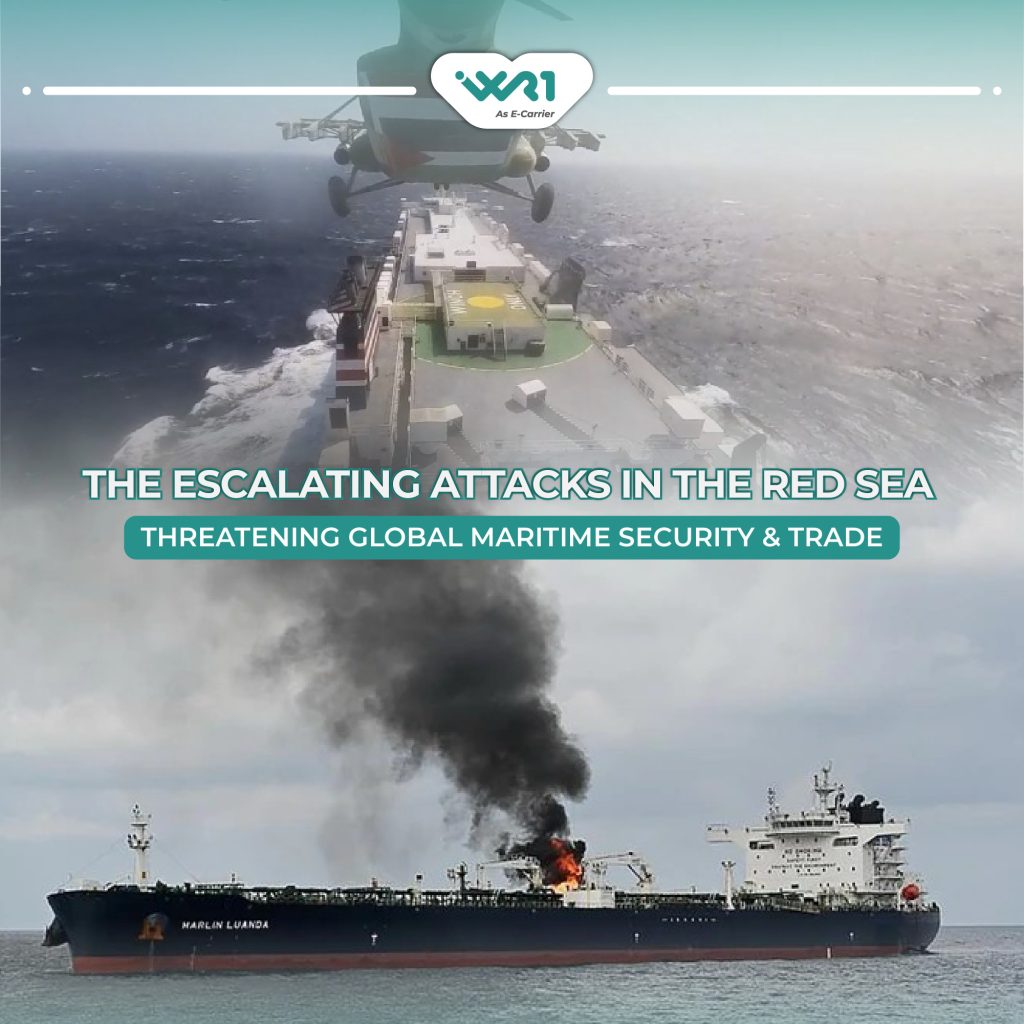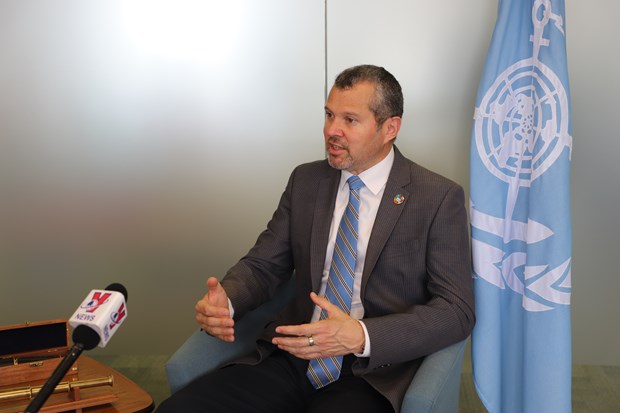The attacks in the Red Sea have deeply impacted the global economy and directly threatened the global supply chain by disrupting container transportation, slowing down deliveries, increasing costs and inflation, and affecting maritime security and global trade. Let’s explore with WR1 through the article below.

The current situation in the Red Sea
On April 7th, the latest attack by Houthi forces occurred in the Red Sea. They claimed to have launched missiles and used drones to attack ships belonging to the UK, US, and Israel. This operation lasted for 72 hours, during which they targeted a British vessel and several US warships in the Red Sea. Additionally, they detected and attacked two Israeli ships in the Arabian Sea and the Indian Ocean while they were en route to Israeli ports.
Recently, there have been continuous attacks between the US-UK coalition and the Houthi forces in the Red Sea region. This situation has escalated tensions, posing a serious threat to global maritime security and commerce.
Insight from Secretary General IMO
On April 5th, at the IMO (International Maritime Organisation) headquarters in London, VNA reporters exchanged views with Secretary General Arsenio Dominguez. Here, Mr. Dominguez emphasized that the recent attacks have deeply affected the global economy and directly threatened the global supply chain by disrupting container transportation, slowing down deliveries, increasing costs, and inflation, thereby impacting energy security and food security.

The attacks in the Red Sea are having a negative impact on global trade and economy since maritime transportation accounts for over 80% of total cargo trade volume. These attacks force cargo ships to reroute, often circumventing the Cape of Good Hope in southern Africa, increasing shipping costs and emissions due to longer routes. This comes at a time when the International Maritime Organization (IMO) is striving to reduce emissions.
To enhance the protection of seafarers against incidents like the True Confidence, the IMO has employed measures previously used over a decade ago to combat piracy off the coast of Somalia in the Gulf of Aden. Additionally, they are gathering expertise and experience aimed at evaluating and revising safety protocols for sailors.
The Secretary General of the IMO stated that the organization is closely monitoring developments in the Red Sea and undertaking diplomatic measures and dialogues with all relevant parties to ensure the protection of sailors, vessels, and cargo.
The IMO, an important forum that gathers relevant parties including governments, partners, and UN agencies, aims to share information, find solutions, and provide support when needed. In the case of the Red Sea situation, the IMO has actively coordinated with member states, UN agencies, and representatives in the maritime industry to gather expertise and experience to address challenges arising from the conflict through legal frameworks and maritime security strategies.



 Tiếng Việt
Tiếng Việt

